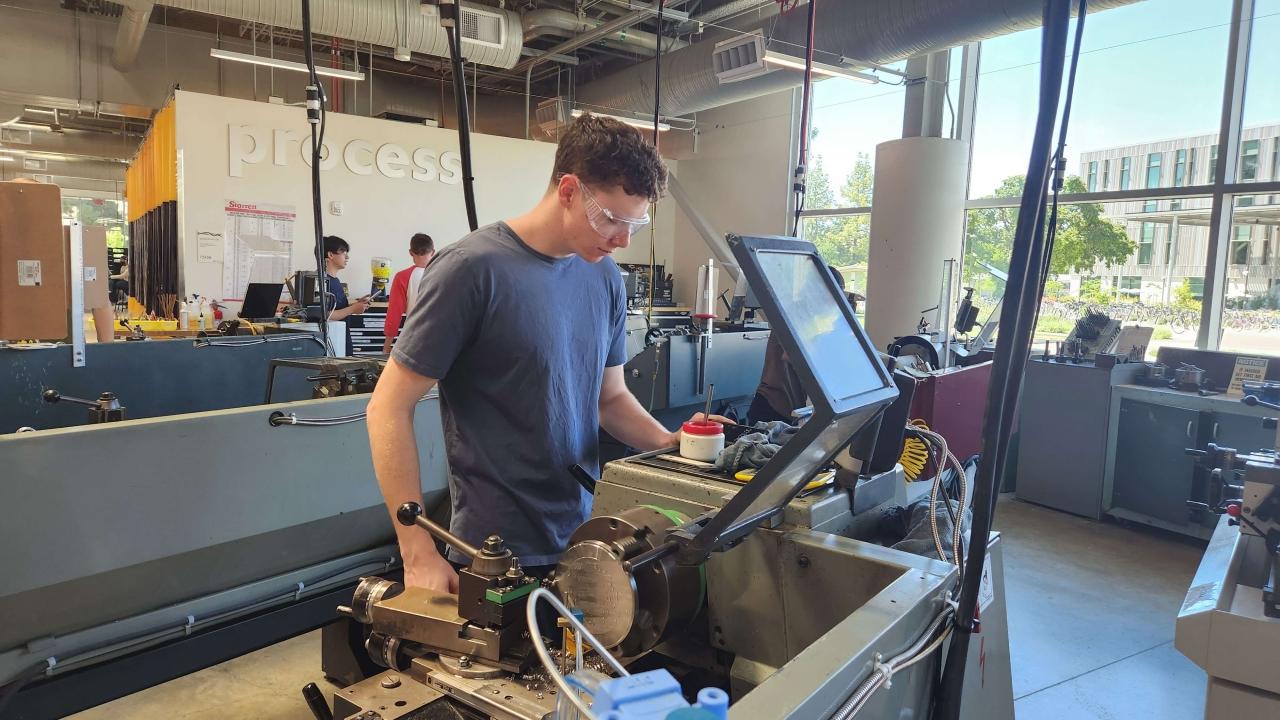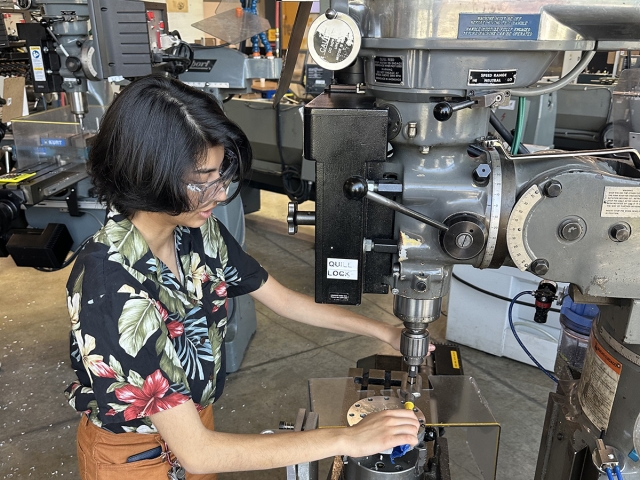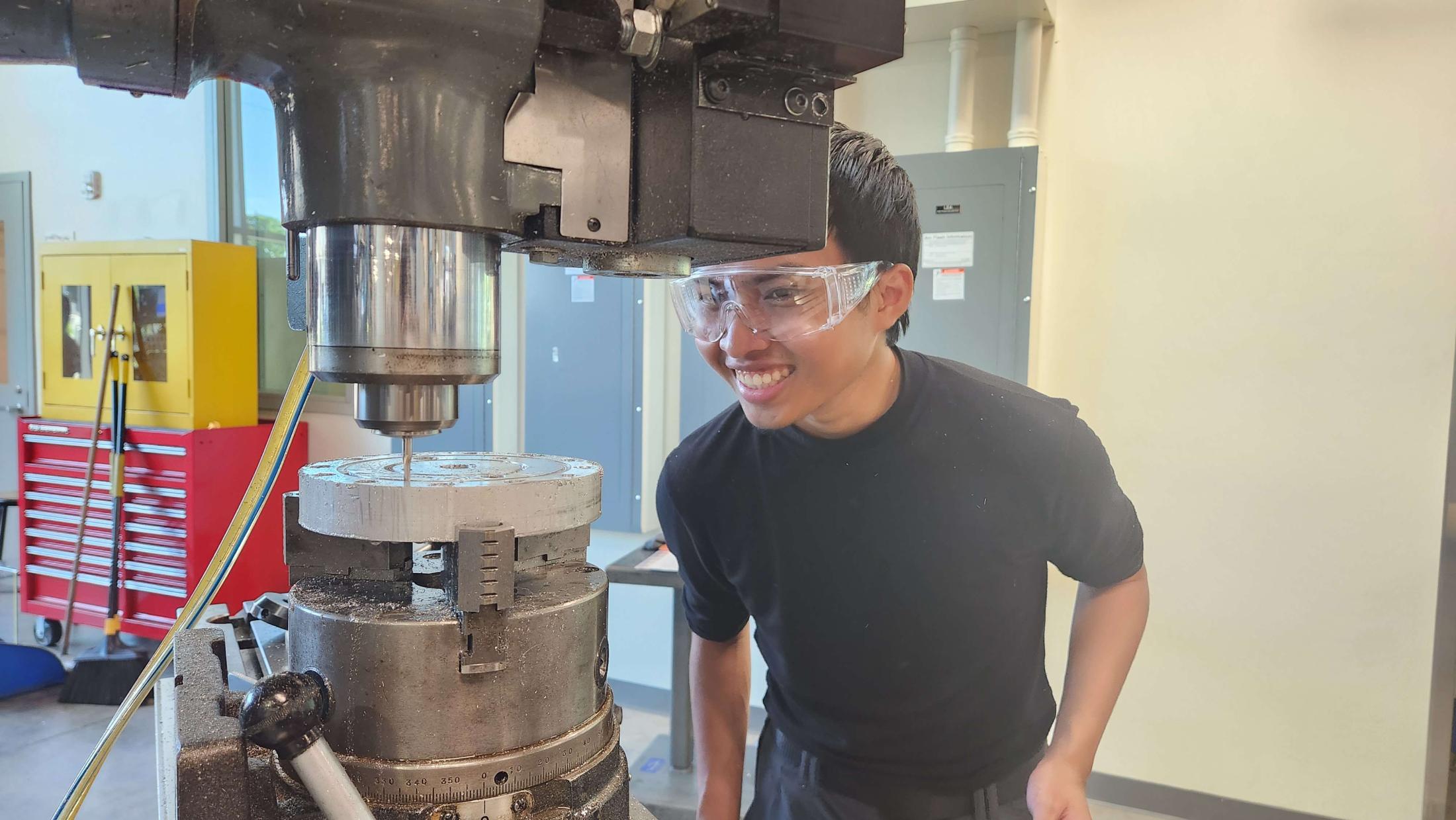
Aggie Propulsion Lab Set Up for Long Term Success
Ali J. Gangeh is pioneering the University of California, Davis, to the stars by leading the team building the university's first liquid rocket engine. Gangeh is an undergraduate student in the Department of Mechanical and Aerospace Engineering. After arriving at Davis, he expressed an interest in a variety of campus clubs but couldn't find the perfect fit for his passions. Undeterred, he decided to create a club for those with similar interests and founded the Aggie Propulsion Lab.

Aggie Propulsion Lab, or APL, is a student-run organization that is working to design, build, test, and launch UC Davis' first liquid-fueled rocket engine. With over 40 members, APL is currently finalizing its rocket engine design and preparing to transition into the assembly or build phase of the project.
Gangeh began to reach for the stars while still in high school when he joined the University of Toronto's Aerospace Team. The experience ignited his interest in rocketry and space exploration and launched his academic career.
With help from Paul Erikson, Professor of Mechanical and Aerospace Engineering, APL began as a research course with approximately 20 students. During class, small teams were formed with each team learning the concepts and principles of rocket engine design. The following summer, the teams compared notes and consolidated their concepts into a final design. That final design is now moving from the draft table to the workbench as it is assembled by the APL team.
According to Gangeh, what makes a liquid rocket engine interesting is its complexity.
Liquid rocket fuel — cryogenic liquid oxygen — is stored at a temperature of -90 degrees Kelvin (-622 degrees Fahrenheit) and then combusted at temperatures over 3000 degrees Kelvin (4,940 degrees Fahrenheit). For reference, that's about half as hot as the temperature of our sun. The conditions are extreme, and Gangeh reveals that the most significant challenge of using liquid oxygen to fuel rockets is harnessing such powerful chemical energy without causing component failure.
Though challenging, this classification of rocket engine is the aerospace industry standard, with almost every rocket launched into space using liquid fuel. Students seeking to work in the aerospace industry or space exploration need to understand the principles and dynamics of liquid fuel propulsion, which APL teaches.
"The amount of work, analysis, design, and complexity involved in getting a liquid rocket engine to fire is ridiculous," Gangeh explains.

Understanding all the efforts behind — well, rocket science — can be very intimidating for beginners. However, APL has an open-door policy for anyone who wants to join. The club has no academic prerequisites for members. In fact, their only requirement is that prospective members have "a willingness, interest, and initiative to learn."
APL prioritizes meeting new members at their current skill set, with a goal to build foundational knowledge through hands-on learning activities. Members are assigned tasks appropriate for their existing knowledge while ensuring that their efforts contribute to the overall project. The club encourages members to meet challenges head-on through experiential research.
Gangeh envisions a sustainable future for the APL. The club will design and construct new and improved rocket engines every year, building on their learnings and leveraging the evolving science.
As for Gangeh, his future has an upward trajectory. He plans to follow his passion for rocketry and space exploration by working in the commercial aerospace industry. His leadership of the APL looks to be the perfect launch pad.
